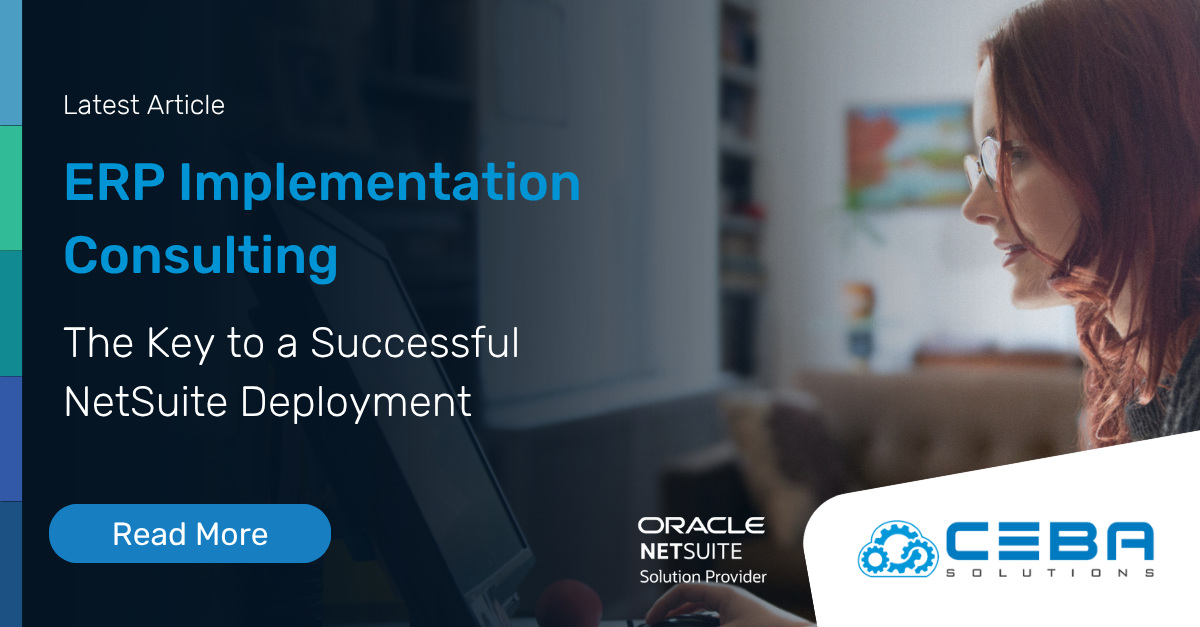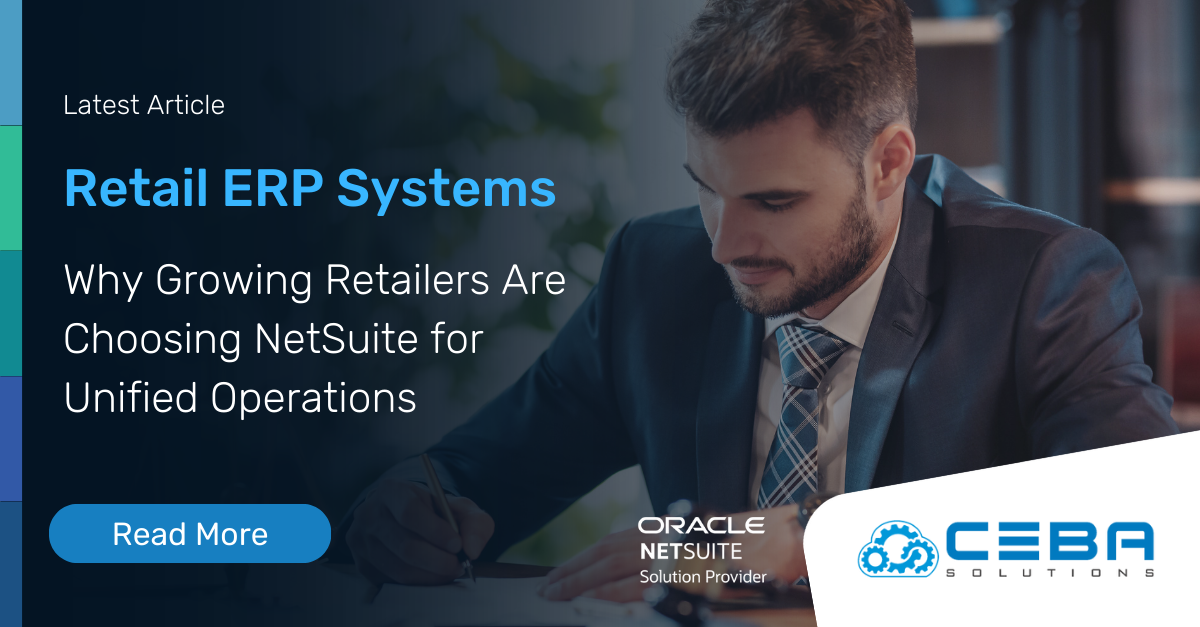.png)
Top 10 ERP Features Food and Bev Companies Need to Ensure Safety and Compliance
Top 10 ERP Features Food and Bev Companies Need to Ensure Safety and Compliance
The food and beverage manufacturing industry faces unique challenges that require specialized solutions to ensure efficient operations, regulatory compliance, and product quality. Enterprise Resource Planning (ERP) systems designed specifically for the food and beverage sector must include a range of features that address these challenges head-on. In this article, we'll explore essential features that food and beverage manufacturing companies should look for when selecting an ERP system.
Quality Control and Assurance
Robust quality control and assurance functionalities are crucial for food and beverage ERP systems. These features should include the ability to manage inspections, testing, and certificates of analysis (COAs) for raw materials and finished products. Automated COA generation and management, as well as non-conformance and corrective action tracking, are also essential for maintaining product safety and compliance.
NetSuite allows users to manage inspections and testing of raw materials and finished products using NetSuite's quality control functionalities. Automated Certificates of Analysis (COAs) are generated and tracked, and non-conformance issues are logged and addressed promptly. NetSuite enables automated quality checks and COA management, ensuring that each batch meets specified standards. Automating quality control processes reduces the risk of human error and ensures consistent product quality. Compared to manual tracking or spreadsheets, NetSuite's integrated system provides real-time visibility and traceability, enhancing compliance and product safety.
Recipe Management and Product Development
Recipe management is a core functionality for food and beverage ERP systems, allowing companies to create, store, and manage product formulas and recipes. ERP systems should support recipe versioning, batch scaling, and yield optimization to ensure efficient production planning and execution. Additionally, nutritional analysis and labeling capabilities are crucial for product development and compliance.
With NetSuite, users can create, store, and manage product formulas and recipes, supporting batch scaling and yield optimization. The ERP system allows for detailed recipe versioning, nutritional analysis, and labeling. Streamlined recipe management ensures accurate and efficient production planning. Unlike managing recipes manually or in isolated databases, NetSuite's centralized system ensures consistency and accuracy, reducing waste and improving product development cycles.
Catch Weight and Variable Unit Measures
Many food and beverage products are sold by weight or in variable units, necessitating specialized catch-weight functionality in ERP systems. This includes the ability to manage products with varying weights or sizes, calculate accurate costs and prices, and integrate with weighing scales and labeling systems for efficient catch weight management.
NetSuite seamlessly handles products sold by weight, such as fresh produce, using catch weight functionality, which integrates with weighing scales to capture precise weights and automatically calculate costs and prices. Accurate weight management ensures proper pricing and inventory control. Compared to manual weight tracking or separate systems, NetSuite's integration minimizes discrepancies and errors, enhancing operational efficiency.
"Effective ERP systems for the food and beverage industry must include robust quality control, recipe management, and catch weight functionalities to ensure compliance and efficiency. These features are essential for maintaining high product standards." - Zabe Siddique, CEO - CEBA Solutions
Lot Traceability and Recall Management
Food safety is a top priority for food and beverage manufacturers, and lot traceability is essential for quickly identifying and isolating affected products in case of a recall. ERP systems should provide end-to-end traceability, allowing companies to track raw materials, ingredients, and finished products throughout the supply chain. In the event of a recall, the system should enable swift and efficient recall management, minimizing the impact on consumers and the company's reputation.
NetSuite allows users to track raw materials and finished products using lot traceability features, enabling swift recalls when necessary. The system provides end-to-end traceability, tracking each lot through the supply chain. Enhanced traceability ensures quick and effective recall management, protecting consumer safety and the company's reputation. Compared to manual tracking or disparate systems, NetSuite offers comprehensive visibility and control, significantly reducing recall response times and potential legal liabilities.
Shelf Life and Expiration Date Management
Perishable ingredients and products require careful management to ensure freshness and minimize waste. ERP systems should include shelf life and expiration date tracking capabilities, enabling companies to monitor and control their inventory based on expiration dates. This feature should also support first-expiry, first-out (FEFO) inventory rotation to optimize stock utilization and reduce spoilage.
With NetSuite, users can monitor perishable inventory with shelf life and expiration date tracking fields. The system tracks expiration dates and supports first-expiry, first-out (FEFO) inventory rotation. Proper management of shelf life reduces waste and ensures product freshness. NetSuite's automation replaces manual monitoring, which is prone to errors, thereby optimizing stock utilization and reducing spoilage.
Allergen Management and Labeling
With the increasing prevalence of food allergies, allergen management and labeling have become critical aspects of food and beverage manufacturing. ERP systems should allow companies to track and manage allergens throughout the production process, ensuring accurate labeling and preventing cross-contamination. The system should also generate compliant ingredient statements and allergen warnings on product labels.
Using NetSuite's tools, businesses can efficiently manage allergens and generate compliant labeling. This ERP system enables real-time tracking of allergens throughout the production process, enabling the creation of ingredient statements and allergen warnings that adhere to regulatory standards. By automating allergen tracking, cross-contamination risks are minimized, ensuring consumer safety and quality. NetSuite's integrated system eliminates the need for separate labeling software and manual allergen tracking, improving overall safety and compliance. This streamlined approach significantly reduces the risk of allergen-related incidents, enhancing overall operational efficiency and product safety.
Regulatory Compliance and Reporting
The food and beverage industry is subject to numerous regulations, such as those set by the FDA, USDA, and other governing bodies. ERP systems must support regulatory compliance by providing features for managing and documenting compliance-related activities, such as HACCP plans, sanitation procedures, and audit trails. The system should also generate reports and documentation required for regulatory inspections and certifications.
NetSuite helps users to maintain regulatory compliance, HACCP plans, sanitation procedures, and audit trails, and generates necessary reports for regulatory inspections. Streamlined compliance processes ensure adherence to industry regulations. NetSuite's integrated compliance tools reduce the complexity and manual effort required to maintain compliance, compared to using spreadsheets or multiple disconnected systems.
Demand Planning and Forecasting
Accurate demand planning and forecasting are essential for optimizing inventory levels, reducing waste, and ensuring timely product availability. ERP systems should include advanced forecasting tools that consider historical sales data, seasonal trends, and external factors to generate reliable demand projections. This feature should also support collaborative forecasting, allowing input from sales teams, customers, and suppliers to improve accuracy.
NetSuite makes it simple to manage inventory levels with NetSuite's demand planning and forecasting tools. Advanced forecasting tools analyze historical sales data and market trends to generate accurate demand projections. Improved demand planning reduces waste and ensures timely product availability. Unlike manual forecasting or standalone tools, NetSuite's integrated system offers more accurate and reliable projections, enhancing inventory management and reducing costs.
Production Scheduling and Optimization
Efficient production scheduling is crucial for maximizing resource utilization, minimizing changeover times, and meeting customer demand. ERP systems should provide robust production scheduling tools that consider factors such as available resources, ingredient availability, and production constraints. The system should also support real-time production monitoring and optimization, enabling companies to adjust schedules and resources as needed to maintain optimal performance.
NetSuite's production scheduling tools allow food and beverage businesses to maximize resource utilization and minimize changeover times. The system considers resource availability, ingredient stock, and production constraints for optimized scheduling. Efficient production scheduling meets customer demand while maximizing operational efficiency. Compared to manual scheduling or using separate tools, NetSuite's integrated solution improves agility and responsiveness, reducing downtime and improving throughput.
Quality Management and Continuous Improvement
In addition to quality control and assurance, ERP systems should support a comprehensive quality management framework that includes tools for continuous improvement. This may include features for root cause analysis, statistical process control (SPC), and quality metrics tracking. The system should also facilitate the implementation of quality management systems, such as ISO 9001 or FSSC 22000, by providing the necessary documentation and data management capabilities.
Finally, NetSuite offers a wide range of features to empower businesses to manage their quality control and continuous improvement initiatives. The system supports root cause analysis, statistical process control (SPC), and quality metrics tracking. NetSuite's comprehensive quality management framework outperforms manual processes or disconnected systems, promoting consistent quality and driving ongoing improvements.
Final Thoughts
Selecting the right ERP system is a critical decision for food and beverage manufacturing companies. By prioritizing the 10 essential features outlined in this article, companies can ensure that their chosen ERP solution is well-equipped to address the unique challenges and requirements of the industry. From quality control and recipe management to lot traceability and regulatory compliance, a comprehensive and industry-specific ERP system can help food and beverage manufacturers streamline their operations, improve product quality, and drive business growth.
Ready to Revolutionize Your Food and Beverage Operations?
At CEBA Solutions, we specialize in helping food and beverage companies harness the full power of NetSuite ERP to ensure safety, compliance, and operational excellence. Our expertise in the food and beverage industry enables us to tailor NetSuite's robust features to meet your specific needs, transforming your procurement processes and driving business growth.
Here's How to Get Started:
Contact Us for a Consultation
Schedule a free consultation with our NetSuite experts to discuss your unique challenges and discover how our tailored solutions can streamline your operations and ensure compliance.
Request a Personalized Demo
See NetSuite in action with a demo customized to your business needs. Experience firsthand how our solutions can improve quality control, recipe management, lot traceability, and more.
Partner with CEBA Solutions
Leverage our expertise as NetSuite Food and Beverage specialists to ensure a smooth implementation and ongoing support. We'll work closely with you to optimize your ERP system for maximum efficiency and compliance.














